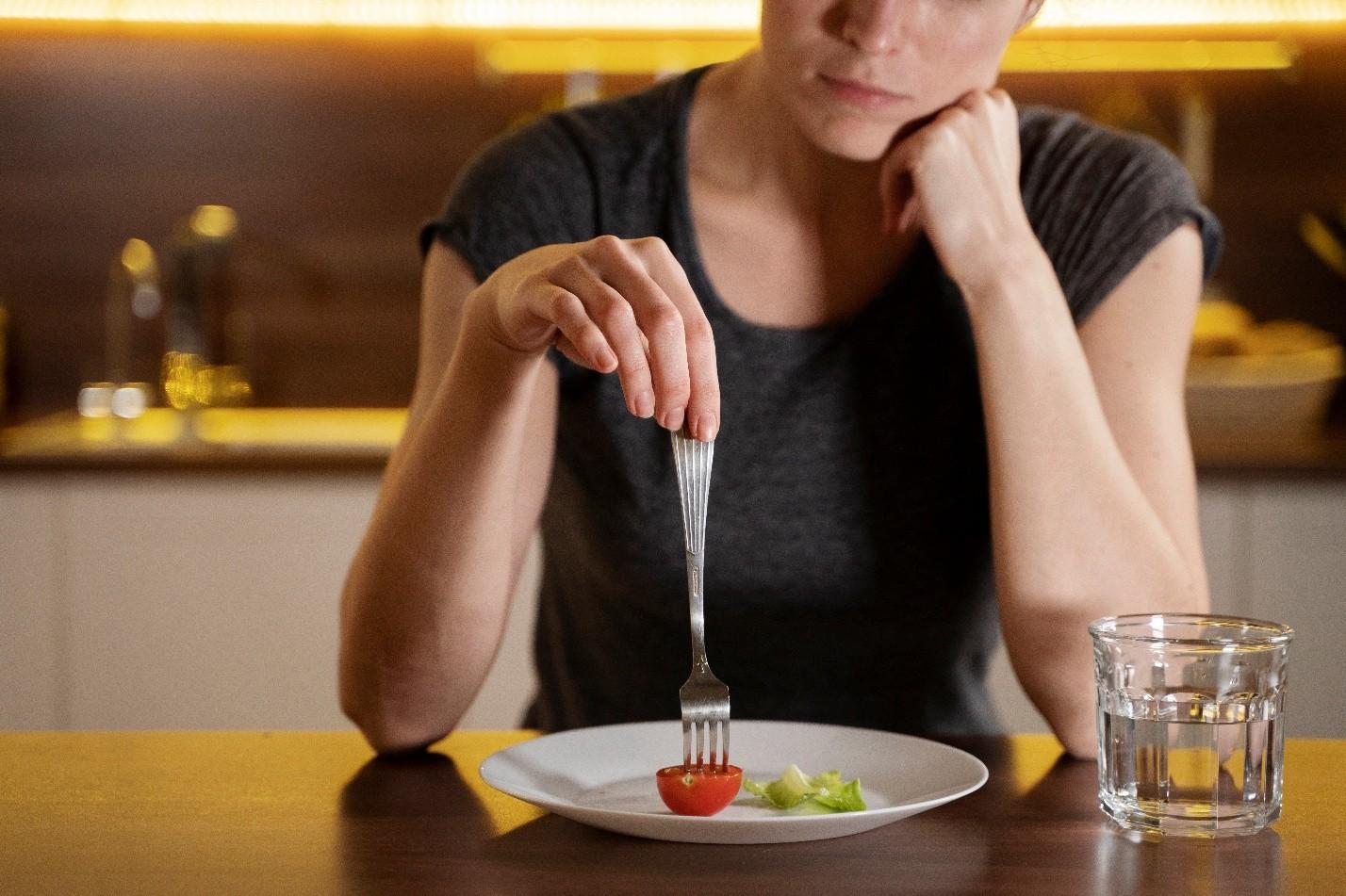Pounds
Divorce often leads to big lifestyle changes that can affect your health and weight. Many people find themselves coping with emotional eating. Learning how to follow a healthy diet during a divorce can be life-changing.
A healthy divorce diet focuses on balanced meals, regular eating schedules, and nutrient-rich foods to support both physical and emotional healing. According to The Emotional Eating Workbook by Carolyn Coker Ross, proper nutrition can reduce stress, stabilize mood, and help manage weight during life changes such as divorce, promoting overall well-being and aiding in recovery from emotional strain.
Key Takeaways
A weight loss divorce, referred to as the "divorce diet," can aid healing by reducing stress-induced eating and increasing physical activity.
This concept is discussed in *The Complete Divorce Recovery Handbook* by John Ventura.
The transition period after a divorce often triggers lifestyle changes.
These changes promote healthier eating and exercise habits.
Weight loss is a common outcome while Going through emotional challenges during this period.
Understanding the Emotional Impact of Divorce on Weight
Divorce hits your body as hard as it hits your heart. Stress from splitting up changes how you eat and move. Some people eat too much comfort food when they feel sad or angry. Others lose their appetite and can't force themselves to eat. Your weight swings up or down based on how you handle the pain.
Your body reacts to divorce stress in surprising ways. Stress hormones like cortisol make you store fat around your belly. When you're upset, you might grab cookies, chips, or fast food without thinking. These foods taste good in the moment but add pounds quickly. Other people feel too sick to eat and lose weight fast.
The good news is you can fight back against stress eating. Talking to a counselor helps you work through tough feelings without using food. Support groups connect you with others going through the same thing. Simple habits like deep breathing or short walks can calm your mind and body.

If you want to move forward with your divorce safely and privately, DivorceFortBendCounty.com can help prepare your documents quickly and discreetly. Our service makes the process simple so you can focus on healing. Take control of your future today with professional support you can trust.
Know your triggers and make a plan to handle them. Keep healthy snacks ready for when stress hits. Find other ways to comfort yourself that don't involve food. Exercise releases good chemicals that fight stress and sadness. With the right tools and support, you can come out of divorce healthier than before.
Creating a Supportive Environment for Your Weight Loss path
Creating a helpful environment supports successful weight loss journeys. Start by surrounding yourself with positive influences. Share your goals with family and friends for encouragement. Consider finding a workout partner for mutual motivation. This can help you stay committed
and inspired. Tidying your kitchen is important too. Remove temptations like junk food and sugary drinks. Fill your pantry with healthy choices instead. Include fruits, vegetables, lean proteins, and whole grains. These habits make smart eating decisions easier. Establish a daily routine to stay consistent.

Plan your meals and snacks to prevent sudden eating urges. Prepare a weekly meal schedule in advance. This will save time and reduce stress related to meals. Create a checklist to track your progress. Reflect on accomplishments and setbacks weekly. This helps maintain motivation and discover areas needing improvement. Practice mindful eating during every meal. Focus on hunger and fullness signals to avoid overeating. Chew slowly and enjoy every bite. Here are some tips for staying mindful:
1. Eat without distractions like TV or phones.
2. Drink water before meals to help control your appetite.
3. Review your progress weekly and celebrate successes.
Celebrate achievements like improved energy levels or fitting into old clothes. It’s important to remember that progress takes time. Be gentle with yourself during challenging times. Set realistic goals that you can reach.
Developing a Divorce Diet: Foods that Promote Healing and Weight Loss
Food can heal your heart and help you lose weight after divorce. The right foods boost your mood and give you energy to face tough days. Berries, spinach, and nuts contain nutrients that steady your emotions. Fish and chicken provide lean protein to keep your muscles strong while you drop pounds.

Your body craves comfort during stress, but smart choices make you feel better. Avocados and olive oil give you healthy fats that fuel your brain and body. Whole grains and beans keep your blood sugar steady so you don't crash emotionally. These foods prevent the mood swings that make divorce even harder.
Fresh fruits and vegetables work like natural medicine for your stressed-out system. They balance your hormones and fight the chaos divorce creates inside you. Foods with omega-3s, like salmon and walnuts, calm anxiety naturally. Fiber from beans and whole grains helps your gut, which affects how you feel mentally.
Water fights the fog that stress puts in your brain. B vitamins and vitamin D keep your mind sharp when everything feels cloudy. Pay attention to when you eat from real hunger versus
emotional pain. Add some exercise to boost the diet's power. Good food choices during this hard time build a stronger, healthier you.
Incorporating Exercise into Your Routine to Boost Mood and Burn Calories
Aspect
Begin Slowly
Set Goals
Choose Enjoyable Activities
Establish a Routine
Exercise with Friends
Stay Positive
Track Your Progress
Includes Variety
Stay Hydrated
Eat Nourishing Foods
Listen to Your Body
Explanation
Start with easy exercises, like walking, then increase your pace or duration gradually.
Create simple, achievable exercise goals to maintain motivation and track your progress over time.
Select activities you like, like dancing or cycling, to make exercise more enjoyable and fulfilling.
Stick to a regular schedule, like exercising every morning, to build consistency and discipline.
Working out with friends can make exercising fun and foster encouragement and accountability.
Focus on the benefits of movement, like better mood and energy levels, to stay motivated.
Log your exercises and improvements, such as distance or time, to measure your success.
Mix different exercises like running, yoga, or weightlifting to avoid monotony and better results.
Drink water before, during, and after workouts to maintain energy levels and prevent dehydration.
Fuel your body with healthy foods, such as fruits and vegetables, to support your exercise efforts.
Pay attention to how your body feels and rest when needed to avoid injury and overtraining.
Aspect Explanation
Celebrate Achievements
Recognize your milestones, like completing a 5K, to boost confidence and encourage perseverance.
Utilizing Mindfulness and Self-Care Techniques to Sustain Weight Loss and Emotional Well-being
Mindfulness and self-care work together like a winning team for lasting weight loss. These tools help you stay aware of your feelings and choices. You start to notice when you eat from stress instead of real hunger. This awareness helps you make better food choices that stick for life.
Self-care goes beyond bubble baths and face masks. It means taking care of your whole self— body, mind, and heart. When you practice good self-care, you handle stress better. Less stress means you're less likely to reach for comfort food when life gets tough.

Daily mindfulness builds your emotional muscles over time. You learn to sit with difficult feelings instead of eating them away. Simple practices like deep breathing or short walks can shift your mood without food. This breaks the cycle of using food as your go-to comfort source.
Small habits create big changes when you stick with them. Try meditation for five minutes each morning or write in a journal before bed. Gentle exercise like yoga connects your mind and body in healthy ways. These practices work together to support both your weight goals and your emotional health.
In the End
Many see divorce as emotionally tough, but it can also be a chance for positive personal change. Eating well during this time is important, as it helps both emotional healing and staying healthy. Tip: Choose nutritious foods and drink plenty of water to keep your energy up and manage weight. By focusing on balanced eating, you can fight stress-eating habits, improve your mood naturally, and build confidence. Physical activity not just helps with weight loss but also improves mental focus and strength during hard times. Having a mindful eating routine gives a sense of control and confidence, essential for dealing with the ups and downs of life after divorce.
